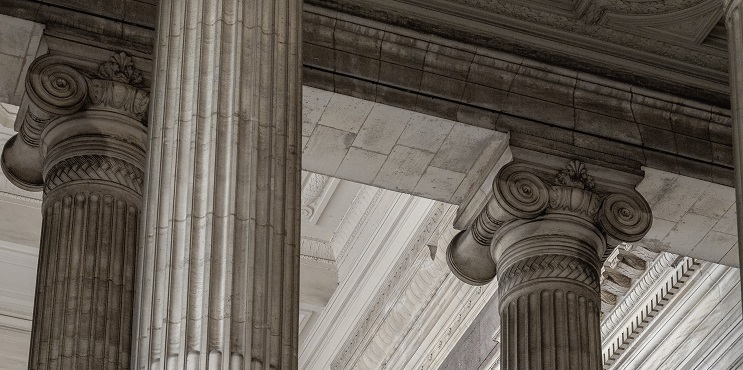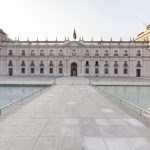- The draft of the new Constitution introduces the category of “natural commons” for which the State would have a special duty of care.
- In addition, the proposed draft states that some of these assets will not be subject to ownership.
What will be the “natural commons”?
The proposed new Constitution defines “natural commons” as those “elements or components of Nature over which the State has a special duty of stewardship in order to secure the rights of Nature [new constitutional rights holder] and the interest of present and future generations“. A non-exhaustive list of these assets is also established, leaving open the possibility of including others by law.
Furthermore, it is established that some of these assets will be not subject to ownership (“inapropiables”). In addition, there are several rules in the constitutional proposal that establish special protections in relation to these assets. See the chart below for more details.
| Natural commons | Not subject to ownership (“inapropiables”)? | Additional protection |
| The territorial sea and its seabed | Yes (territorial sea) | It establishes the State’s duty to conserve, preserve, care for and protect marine ecosystems.
Special protection is established for the maritime areas of the Chilean Antarctic territory.
|
| Beaches | Yes | |
| The waters | Yes, water in all its states | Authorisations for the use of water shall not be the subject of private transactions (“incomerciable”), shall be granted on the basis of the actual availability of water and shall bind the holder to the use justifying the granting of the authorisation. |
| Glaciers | It is not expressly stated. However, the draft states that waters will be not subject to private ownership (“inapropiable”)in all their states. | It is established that the State must guarantee the protection of the glacier and its environment, including the frozen soils and their ecosystem functions.
It establishes that land-use and ecological land-use plans must prioritise the protection of glaciers.
Glaciers will be excluded from any mining activity.
|
| Wetlands | No | It establishes that the State must ensure the integrity of its ecosystems, functions, processes and water connectivity. |
| Geothermal fields | No | |
| Air and atmosphere | Yes (air) | It states that the State shall promote measures to conserve the atmosphere and the night sky.
It establishes that all people have the right to clean air throughout the life cycle, in a manner to be determined by law.
|
| The high mountains | No | |
| Protected areas | No | It establishes that the State shall (1) guarantee the preservation, restoration and conservation of these natural spaces; (2) monitor and maintain updated information regarding the attributes of these areas; and (3) guarantee the participation of local communities and territorial entities.
Protected areas will be excluded from all mining activities.
|
| Native forests | No | It states that the State must ensure the integrity of its ecosystems, functions, processes and water connectivity. |
| The subsoil | No |
As mentioned above, the draft of the new Constitution states that this new category of natural commons could include all those that are so declared in the Constitution or in the law. It is also established that all those that are “recognised by international law” may not be subject to private ownership (“inapropiable”).
It also establishes that the State shall be the custodian of the natural commons and shall have the power to regulate the use of those in the private domain.
In addition, the right of responsible and universal access to some of these “natural commons” is recognised for all people: (1) mountains; (2) riverbanks; (3) the sea, beaches, lakes, lagoons, and wetlands; (4) among others defined by law.
Duties of the State with respect to the “natural commons” not subject to ownership
The constitutional proposal states that the State shall: (1) preserve, conserve and, where appropriate, restore them; and, likewise, (2) manage them in a democratic, supportive, participatory, and equitable manner.
It is also established that any person may request that the State fulfil its duties of custody of the natural commons. The procedure and requirements of this legal action must be defined by law.
Authorisations for the use of the “natural commons” not subject to ownership
The New Constitution Draft states that the State may grant administrative authorisations for their use. However, these authorisations, as established by law, will have the following characteristics:
- They shall be temporary
- They shall be subject to expiration, extinction, and revocation causes.
- They shall have specific conservation obligations justified in (1) the public interest; (2) the protection of nature; and (3) the collective benefit.
- They shall not generate property rights (whether individual or collective authorisations).
Environmental sustainability policy
The draft also establishes the duty of the State and territorial entities to establish a permanent policy of sustainable and harmonious development with nature. Consequently, authorities should bear this duty in mind when passing laws, regulations or other acts that regulate the “natural commons”.
In order to fulfil this duty, it is expressly established that the law may establish taxes on the use of the “natural commons”. The law must distribute the resources obtained in this way, with respect to activities that are territorially circumscribed, to the corresponding territorial entities.
Is there such a thing as “natural commons” in the current Constitution?
No. However, Article 19 N° 23 of the Constitution currently in force provides, as an exception to the freedom to acquire ownership of all kinds of property, for (1) property which nature has made common; and (2) property which should belong to the Nation as a whole (provided that a law so declares).
On the other hand, Article 589 of the Civil Code establishes that “national assets” are those whose domain belongs to the nation as a whole, and are classified into two categories: (1) national assets for public use, meaning those whose use belongs to all the inhabitants of the nation (including streets, squares, bridges, roads, adjacent sea and beaches); and (2) State’s assets, referring to those whose use does not belong to all the inhabitants of the nation.
Uncertain implications
Notwithstandingto what may be regulated in the transitory norms that may eventually be incorporated in the draft of the new Constitution, the implementation of this regulation regarding the “natural commons” and the possible implications on current and future concessions, rights, permits and authorisations to use these “natural commons” (such as water rights, authorisations for the use of public goods, etc.) are still uncertain. Its implementation will most likely require the modification and/or enactment of laws and regulations that clearly establish the implications of this new regulation.
Contacts




